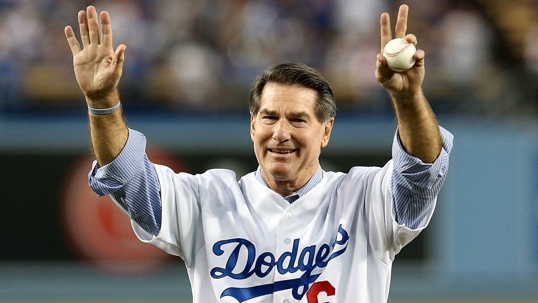
On Friday, August 21, 2015, Attorney Lester Munson, a legal analyst for ESPN, weighed in with his opinion that Tom Brady has virtually no prayer of seeing his federal appeal of Roger Goodell’s arbitration suspension overturned – at least in any way that will stand up on appeal – by U.S. District Court Judge Richard Berman. Prominently cited in Munson’s essay was the U.S. Supreme Court case of Major League Baseball Players Association v. Steve Garvey, 532 U.S. 510 (2001). Munson’s opinion was seized upon by sports pundits who think that the Garvey decision somehow handcuffs Judge Berman from vacating the Goodell award. It does no such thing; in fact, the opinion in no way undermines the NFLPA’s reliance upon United Paperworkers Int’l Union v. Misco, Inc., 484 U.S. 29, 38 (1987).
Munson writes:
To make sure everyone understood its ruling, the Supreme Court went so far as to say in the Garvey decision that even when the arbitrator’s “procedural aberrations rise to the level of affirmative misconduct,” a federal judge may not “interfere with an arbitrator’s decision that the parties [players and owners] bargained for.”
The second quotation (“interfere with an arbitrator’s decision”) is a misquote that does not appear in the same sentence – or even the same thought – as the first quotation in the actual Garvey opinion. And while the first quotation (“procedural aberrations”) was in the opinion, it must be read in context to understand the ruling. What the Supreme Court actually said in Garvey at p. 510 was:
Consistent with this limited role, we said in Misco that “[e]ven in the very rare instances when an arbitrator’s procedural aberrations rise to the level of affirmative misconduct, as a rule the court must not foreclose further proceedings by settling the merits according to its own judgment of the appropriate result.”
Munson twists the quote above to suggest that misconduct by an arbitrator is notgrounds for vacating an arbitrator’s decision under Garvey. What the Supreme Court actually said in Garvey is quite the opposite: if the rare event that an arbitrator engages in misconduct, then a court’s only remedy is to vacate the arbitrator’s decision completely. Munson is badly off base, in other words.
In reality, the Supreme Court reversed the Court of Appeals in Garvey for two reasons:
1) The Court of Appeals “disagreed with the arbitrator’s factual findings, particularly those with respect to credibility” – which the Supreme Court deemed an impermissible overreach by the Court of Appeals; and 2) the Court of Appeals didn’t just vacate the award, it directed the District Court to remand the case to the arbitration panel with instructions to enter a new award for Garvey in the amount he claimed – which the Supreme Court deemed a second, even more impermissible overreach by the Court of Appeals.
It is well settled that “as long as the arbitrator is even arguably construing or applying the [CBA] and acting within the scope of his authority, that a court is convinced he committed serious error does not suffice to overturn his decision.” Misco, at p. 38. The Court of Appeals in Garvey overturned the arbitrator’s decision because was they found that the arbitrator’s refusal to believe a key letter introduced by Garvey was “irrational”. For its part, the Supreme Court found that this decision by the Court of Appeals was “nothing short of baffling”. This was the Supreme Court’s way of affirming that appellate courts cannot conduct a second look at the factual findings of arbitrators, which are generally afforded great deference.
Overturning an arbitrator’s ruling might be difficult, but Brady has made a career of defying the odds.
What the Supreme Court did not say in Garvey was that procedural errors amounting to misconduct by an arbitrator are somehow beyond the review of the courts – i.e. the core argument made by Brady and the NFLPA. Nevertheless, Munson’s article implies that the Garveyopinion – which centers on factual, rather than procedural errors by an arbitrator – provides Goodell with the ultimate trump card in the Brady dispute.
The second reason the Supreme Court overturned the Court of Appeals in Garvey was the instruction made by the Court of Appeals, directing the lower District Court to remand the case back to the arbitrator, with instructions to the arbitrator to then enter a new award suggested by the Court of Appeals. The Supreme Court held in Garvey that in cases where vacatur is warranted, all a District Court judge can do is either affirm or vacate the arbitrator’s decision.
Accordingly, Judge Berman cannot re-write Roger Goodell’s decision – but anyone who says Judge Berman can’t vacate the Brady award, and make it stand up on appeal, was not paying attention to his remarks in the August 19, 2015 court hearing, particularly those regarding the shadowy role of NFL attorney Jeffrey Pash in the proceedings.
What did Jeffey Pash have to do with the Wells Report?
Was Pash the co-investigator with Ted Wells in the preparation of the report? If he was involved in the editing of the Wells report, then it sure sounds like he was a co-investigator, and therefore was not entitled to hide behind the claim that he was acting as an attorney for the NFL in the June appeal hearing. As someone who was “editing” the Wells report, Pash was in a position to filter out evidence that tended to exculpate Brady from the report that was handed to Troy Vincent.
Here’s the rub: the failure of the NFL to produce Jeffrey Pash for testimony at the Brady arbitration hearing was not a factual determination to which Judge Berman owes deference under Garvey. Pash’s exclusion was a procedural decision that is subject to judicial review under a different line of cases from Garvey. Judge Berman was clearly troubled by Pash’s exclusion and, if he finds it was an error that prejudiced Tom Brady, Berman can vacate the suspension on just that one narrow, procedural ground. However, Pash’s exclusion was not the only procedural violation alleged by the NFLPA, which relies heavily on the lack of notice of punishment (or lack thereof to Tom Brady) in its appeal. Judge Berman can also rule that the NFL violated a number of industry practices, or the Collective Bargaining Agreement itself – none of which will lead him anywhere near Goodell’s factual findings or the Garvey decision.
It is clear from his remarks that Judge Berman is thinking about vacatur as a remedy on procedural grounds, and there is nothing in the Garvey opinion that says Berman can’t do exactly this – and have it stand up on appeal.
For my previous blogs on Deflategate, please visit here and here.
About the Author: James M. Lynch is a Massachusetts divorce lawyer and Massachusetts family law attorney for Lynch & Owens, located in Hingham, Massachusetts.

